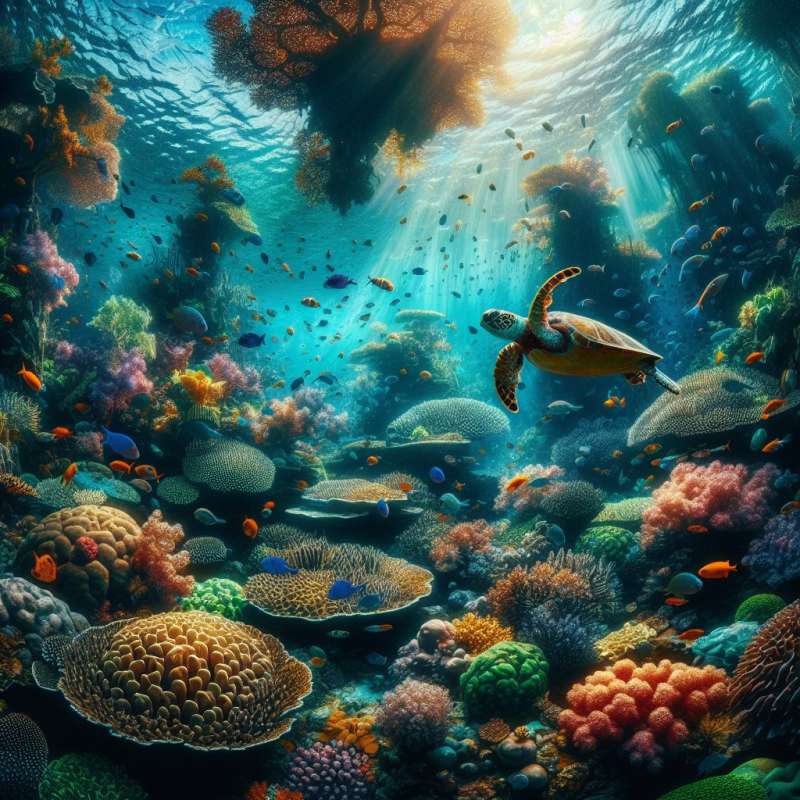
Coral Reefs Introduction
Coral reefs are diverse underwater ecosystems held together by calcium carbonate structures secreted by corals. These vibrant underwater cities are sometimes called 'rainforests of the sea.'
Reefs’ Global Importance
Despite occupying less than 0.1% of the ocean's surface, coral reefs support approximately 25% of all marine life, showcasing their immense biodiversity and ecological significance.
Symbiosis Secrets Unveiled
Corals have a mutualistic relationship with zooxanthellae algae. The algae provide corals with nutrients through photosynthesis, while corals offer the algae a protected environment and compounds they need for photosynthetic processes.
Reef Ecosystem Dynamics
Reef ecosystems are complex and include a variety of habitats like mangroves and seagrass beds, which serve as nurseries for many reef-dwelling species, thus maintaining the reef's health and resilience.
Threats to Coral Reefs
Coral reefs face numerous threats including climate change, ocean acidification, overfishing, destructive fishing practices, and pollution. These factors can severely impact reef health and biodiversity.
Coral Bleaching Phenomenon
Coral bleaching occurs when corals, stressed by changes such as increased water temperatures, expel the symbiotic algae living in their tissues, causing the coral to turn completely white and making them more susceptible to disease.
Conservation and Restoration
Efforts to protect and restore coral reefs include establishing marine protected areas, promoting sustainable fishing, reducing carbon footprints, and coral farming and transplantation projects to rehabilitate damaged reefs.Coral Reef Soundscapes
Healthy coral reefs produce a symphony of sounds, attracting marine life and aiding in the reef's recovery after damage.
What structures hold coral reefs together?
Calcium carbonate structures
Silica-based exoskeletons
Organic polyp colonies
Company